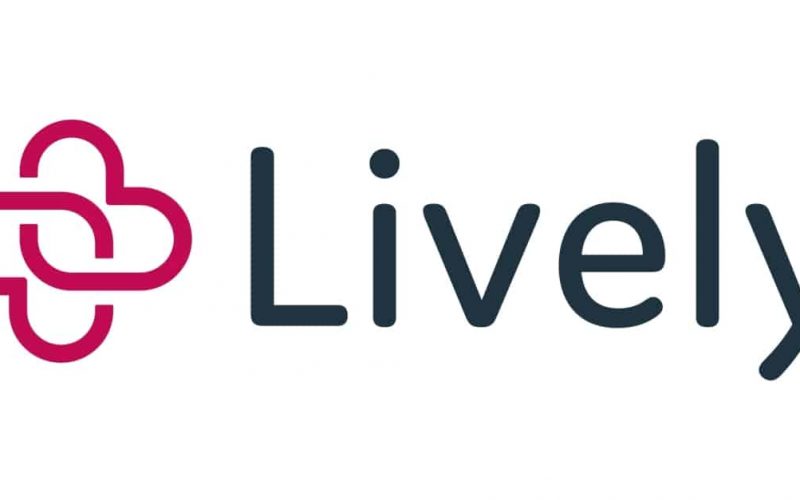A health savings account, or HSA, is quickly becoming a necessity in today’s world of high out-of-pocket medical costs. Since out-of-pocket expenditures can add up to thousands of dollars per year, an HSA allows you to account for those costs while still receiving a tax deduction. And, similar to an IRA, any funds not spent can be maintained and invested tax-free. Lively distinguishes itself from other HSA providers in that it specializes in HSA plans. As a result, Lively has more investment options than other HSA providers. This includes the ability to invest your money in either stable, interest-bearing assets or self-directed investing in any asset class you choose. So let’s see a review of Lively HSA, how to open an account, and the fees.
Lively HSA Review
Lively, based in San Francisco and founded in 2018, is a company committed to bringing health savings accounts (HSAs) to the masses in order to alleviate the pain of rising healthcare costs. By specializing in HSAs, Lively assists customers in budgeting for increasing out-of-pocket medical expenses while receiving a tax gain.
Many financial institutions, especially banks and credit unions, provide HSA accounts. However, there are only a few companies that specialize in this highly specialized tax-sheltered financial account.
The Lively HSAs are open to individuals as well as through employer programs. If your company does not have an HSA alternative, it might be worthwhile to recommend the service to human resources or employee benefits.
The lively HSA review has an A- rating from the Better Business Bureau on a scale of A+ to F. Lively HSA has a rating of 4.7 stars out of five on the App Store and 4.9 stars out of five on Google Play, even though both scores are based on a small number of reviews. Even, a good review is a good review for Lively HSA review!
Read also: HSA Investment: Best Options and Tax Benefits
What is a Health Savings Account (HSA)?
The simplest way to explain an HSA is to compare it to a medical IRA. It functions similarly to an IRA in that contributions to the account are tax-deductible. Any revenue you receive from the money in the account is tax-free. Furthermore, if funds are withdrawn from the HSA to pay for eligible medical costs, there is no tax owed on the withdrawals.
Furthermore, any funds in your HSA that you do not use in a given year can be carried forward indefinitely. You may invest the funds in either interest-bearing securities or equity-type assets such as stocks and mutual funds.
In principle, if you contribute the full amount to an HSA per year and never take withdrawals, you will accumulate hundreds of thousands of dollars after decades of continuously investing the funds.
You will contribute up to $3,550 for singles and $7,100 for families in 2021. However, taxpayers 55 and older are eligible for an extra $1,000 catch-up contribution.
Eligibility Requirements for HSA
To be eligible for an HSA, you must have a high-deductible health insurance plan (HDHP) that meets the following limits:
- Singles with an HDHP have a $1,400 minimum deductible and a $6,900 gross out-of-pocket limit.
- Families with an HDHP have a minimum deductible of $2,800 and a maximum out-of-pocket limit of $13,800.
You are qualified to participate in an HSA if you meet the above requirements. Few rules would prohibit you from opening your own account, unlike with most tax-sheltered plans. However, you should be mindful that if you enroll in Medicare, you will no longer be eligible for an HSA.
Why You Might Want to Start Your Own HSA
With healthcare costs as high as they are, even having health insurance is frequently insufficient. Copayments, high deductibles, and coinsurance provisions can result in out-of-pocket costs in the thousands of dollars per year. An HSA allows you to a) budget funds in advance of those costs and b) receive a tax break for your contributions.
That second part is crucial. Since the Tax Cuts and Jobs Act of 2017 nearly doubled the standard deduction, itemizing deductions is nearly impossible for the average household. It’s even more difficult with medical expenses because they can only be deducted up to 10% of your adjusted gross income (AGI).
However, you can avoid this issue by using an HSA. It allows you to claim a tax credit for out-of-pocket medical expenses even though you do not itemize on your tax return. For example, if you have a family plan and donate $7,100 in 2021, you will be able to subtract the maximum amount of the donation. You can take the deduction even though you don’t itemize or use any of the funds for medical expenses.
You would not only reduce your tax bill, but you will also be creating a fund for both current and potential out-of-pocket medical expenses. What you don’t spend from the account can be saved and invested. As a result, it is a medical expense account and a retirement plan rolled into one.
If you want to open an HSA account, Lively is a great place to start.
How Does Lively Work?
You can set up either one-time or recurring contributions with Lively. There will be no paperwork to fill out, and you can fund your account by linking your bank account or through your regular employer payroll contributions. They also allow you to transfer HSA accounts from other trustees into your Lively account.
When you deposit funds into a Lively HSA account, you will be given two investment options. One of the lively HSA investment options is to put the money in an interest-bearing account at an FDIC-insured bank. The other lively HSA investment option is to keep the funds in a TD Ameritrade self-directed brokerage account.
Your assets will be kept at Choice Financial if you select the fixed-income bank investments. It will have FDIC cover, which will secure the account up to $250,000.
Current interest rates on the Choice Financial Account
The following are the current interest rates charged on the Choice Financial Account:
- Less than $2,500 – 0.25 percent annual percentage yield
- $2,500 to $4,999 – 0.35 percent annual percentage yield
- $5,000 to $14,999 – 0.45 percent annual percentage yield
- $15,000 or more – 0.60 percent annual percentage yield
Using The HSA to Pay for Medical Expenses
You will be given an HSA Visa debit card that can be used anywhere Visa is approved to make accessing your HSA account easier while paying for medical expenses. The card may be used at any qualified medical expense provider, including a doctor’s office, pharmacy, or hospital.
You will be given up to three debit cards for free.
Lively HSA Fees & Pricing in Real Time
There are no fees for keeping your HSA account with Lively as a person. This includes no account opening or closing fees, monthly maintenance, funds transfers, and up to three debit cards for the Lively HSA account.
According to Lively, its HSA account holders have saved more than $1,378,858 in fees by using their service.
Features of Lively HSA
#1. Lively Marketplace:
Lively can deliver some discounts due to agreements with different service providers. Among the service providers are:
- Access Labs – Low-cost lab research at a site near you.
- PlushCare – An online doctor service that allows you to get prescriptions in 15 minutes or less.
- HSA Store – Offers tools for managing your HSA.
- Parasail – Provides flexible monthly payment plans to assist in the payment of healthcare costs with tax-free funds.
- SimpleContacts – Renew and order contact lenses from the comfort of your own home.
- Jonas Paul – Provides designer children’s glasses, with every lens sold helping to prevent childhood blindness in developing countries.
- Zendy Health – Provides resources to assist you in diagnosing, locating, and comparing medical and dental facilities.
- Candid Co. – Provides custom clear aligners to make teeth straightening easy, comfortable, and affordable.
- Audicus – The most cost-effective way to obtain high-quality hearing aids, including online training and specialist assistance.
- Pill Pack – Pre-sorts your drugs by day and time, and then delivers them right to your door.
#2. Mobile app:
You can use your mobile device to manage and track your Lively HSA account. The Lively software is available in the App Store for iOS 11.0 or later devices and is compatible with the iPhone, iPad, and iPod touch. The software is also available on Google Play for Android devices running 5.0 and up.
You can use the mobile app to make donations, track HSA expenses, check your account balance, control your savings, and even search the HSA marketplace for eligible services and products.
#3. Customer Contact
Customer service is available by email and toll-free phone from 6:00 a.m. to 6:00 p.m. Pacific time, Monday through Friday. There is also a comprehensive HSA Guide that will answer several of your most frequently asked questions
#4. Account Security:
To ensure the security of your account, Lively takes the following steps:
- Since an HSA is a health-related account, Lively ensures that confidential personal health information is kept secure in accordance with HIPAA regulations.
- They protect your data by encrypting it with the AES 256 disk encryption standard, which prevents unauthorized access.
- When accessing your account, use two-factor authentication to add an additional layer of protection.
- Both sensitive servers are housed in a private subnet that is inaccessible via the Internet.
- SSL/TLS past passwords and encrypted access are used, encrypting all data transmitted across the internet and internal networks and hashing passwords throughout the database according to industry best practices.
How to open an account with Lively HSA
With a single-page download, you can open a Lively HSA account entirely online. You can enter your full name, email address, and mobile phone number, followed by the development of a password. You must also agree to the Terms & Conditions and Privacy Policy before you can sign up.
The following move is to connect your bank account to your Lively account. As soon as you start transferring money, it will be available for paying medical bills.
You will also be given the option of opening an interest-bearing bank account or a self-directed savings account with TD Ameritrade.
You may also set up automatic withdrawals from your bank account or your paychecks.
Read Also: Health Savings Account Rules (HSA Rules) 2021 (Updated!)
Pros and Cons with a Lively HSA
Pros
- For individual and employer-sponsored plans — Lively is available for both individual plans and employer-sponsored benefit programs.
- Free to Use-Lively is a free program for individuals and families to use.
- Manage your account on the go — The Lively Mobile app allows you to manage your HSA account on the go, including finding participating medical providers.
- Discounted services — The Lively Marketplace allows you to get discounted services in conjunction with your HSA account.
- Tax and spending benefits of an HSA plan – Lively provides all of the tax and spending incentives of an HSA scheme, including tax-deductible contributions, tax-free investment options, and tax-free withdrawals of eligible medical expenses.
- Lively HSA Investment options — You can invest in an interest-bearing bank account or a self-directed brokerage account, both of which offer nearly limitless investment opportunities.
Cons
No local branches — Since Lively is an online service provider, it does not have the advantage of local bank or credit union branches.
Lively HSA Investment Options CUstomer Care
Lively HSA has an amazing customer care crew that is open and friendly to you. The customer care line of lively HSA is open and accessible to all. You can contact them on
800-733-6632. Also, the phone line charges $0.99 per minute for their calls and this will be deducted from your monthly plan.
Should you enroll in a Lively HSA?
It is not an exaggeration to claim that almost everyone nowadays needs an HSA account–at least if you have a high premium, high out-of-pocket health insurance plan. Even if you have health insurance, high out-of-pocket expenses may have a significant impact on your financial condition. This is particularly true if you have a medical condition that necessitates continuous care and costs.
How does Lively HSA help me keep track of my medical expenses and save for the future?
Lively HSA provides account holders with tools and resources to help them keep track of their medical expenses and save for the future. This may include features such as transaction history, balance tracking, and alerts to help users monitor their spending and saving progress. By using these tools, account holders can ensure that they are maximizing their HSA funds and using them to pay for eligible expenses.
Does Lively HSA offer any mobile app or online tools to manage my HSA account?
Yes, Lively HSA offers a mobile app and online tools to help account holders manage their HSA account and access their funds. These tools allow users to track their spending and savings, access their account information, and pay for medical expenses directly from their HSA account. The online and mobile tools offered by Lively HSA provide users with convenient and easy-to-use options for managing their HSA account.
Can I use my Lively HSA debit card to pay for medical expenses?
Yes, Lively HSA account holders can use their HSA debit card to pay for eligible medical expenses. This provides a convenient and efficient way to access the funds in their HSA account and pay for medical expenses on the spot. By using the Lively HSA debit card, account holders can avoid the hassle of writing checks or paying out-of-pocket for eligible expenses.
How can I check the balance and transactions in my Lively HSA account?
Lively HSA provides account holders with access to their account information and transaction history through the Lively HSA mobile app or online portal. Users can easily check their balance and review their transaction history to stay on top of their spending and saving progress. By regularly monitoring their account, users can make informed decisions about how to use their HSA funds and ensure that they are using them effectively.
What customer support does Lively HSA offer?
Lively HSA offers a variety of customer support options to help account holders with any questions or issues they may have. This may include phone support, email support, and online resources such as a knowledge base and FAQs. Lively HSA’s customer support team is available to assist users with account setup, fund transfers, and other questions related to their HSA account.
Can I transfer my existing HSA funds to Lively HSA?
Yes, you can transfer your existing HSA funds to Lively HSA. This process typically involves contacting your current HSA provider and requesting a transfer of funds to your Lively HSA account. Once the transfer is complete, your funds will be available in your Lively HSA account and you can start using them to pay for eligible medical expenses.
Conclusion
From recent reviews, Lively is one of the best companies in which to open an HSA. Although banks provide stable, interest-bearing deposits and brokerage firms offer limitless investment options, Lively HSA provides both. You can choose either one or both, or you can divide your account between the two.
When funds are required for qualified medical expenses, you can use the Lively HSA Visa debit card to access the account. You can also track your account completely from your mobile app, like finding qualified healthcare providers. And, perhaps most importantly, the Lively HSA service fee is free to use.
If you want more details on the HSA fees, and reviews or to sign up for the service, go to the Lively website.
Lively HSA FAQs
Who has the best HSA plan?
The 7 Best Health Savings Account (HSA) Providers of 2021
- Best Overall: HealthSavings Administrators.
- Best for No Fees: Lively.
- Best for Families: The HSA Authority.
- Best for No Minimum Balance Requirement: HSA Bank.
- Best Investment Options: Fidelity.
- Best Mobile App: HealthEquity.
- Best for Employers: Further.
Do HSA's earn interest?
Yes, and tax-free. HSA accounts calculate, compound, and credit interest monthly based on the applicable rate for different tiers of the account balance. View the Optum Bank Health Savings Accounts page.
What is considered a high deductible health plan?
For 2021, the IRS defines a high-deductible health plan as any plan with a deductible of at least $1,400 for an individual or $2,800 for a family. An HDHP’s total yearly out-of-pocket expenses (including deductibles, copayments, and coinsurance) can’t be more than $7,000 for an individual or $14,000 for a family.
What happens to money in HSA if not used?
HSA money is yours to keep. Unlike a flexible spending account (FSA), unused money in your HSA isn’t forfeited at the end of the year; it continues to grow, tax-deferred. … Your HSA belongs to you, not your employer, just like your personal checking account.






